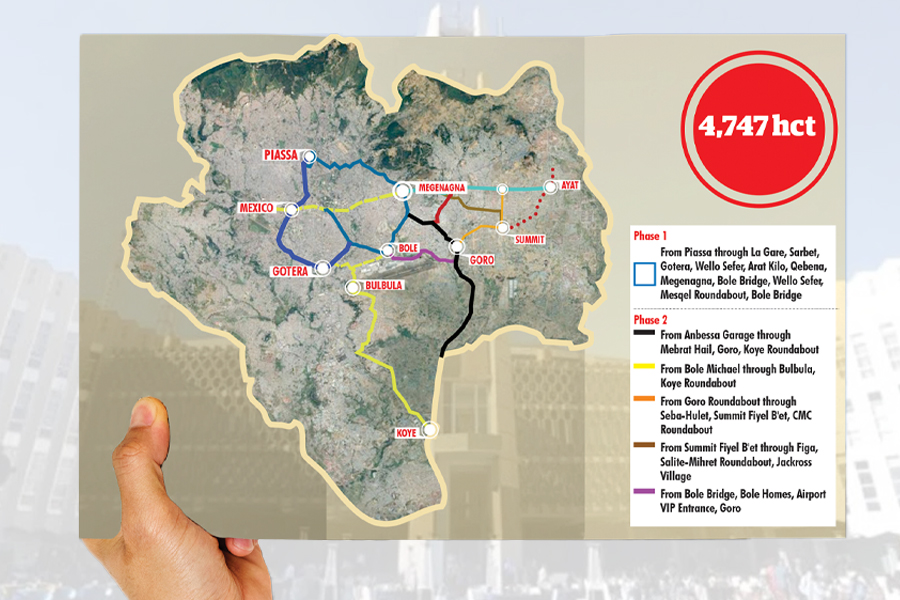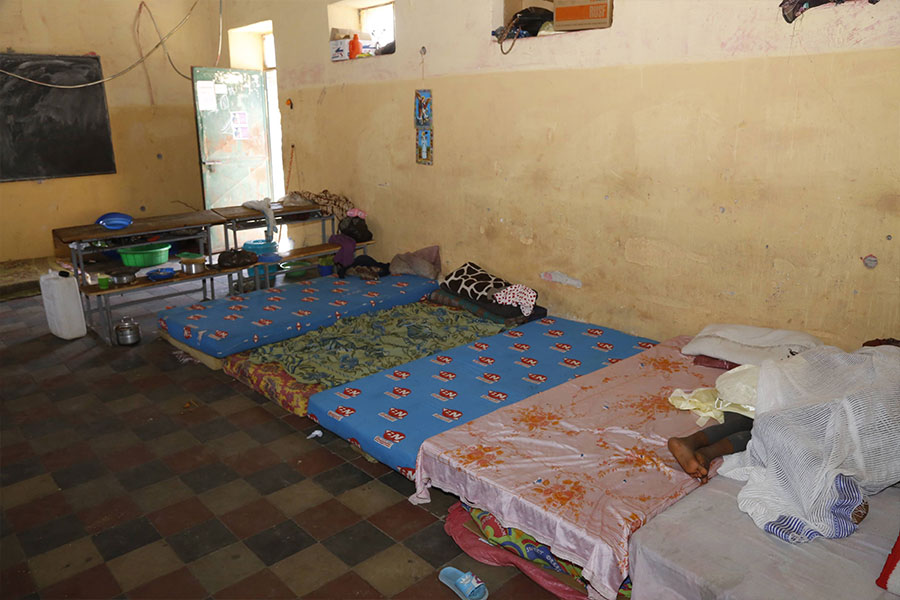
View From Arada | Feb 01,2020
Nov 9 , 2019
A friend stands up, loudly declaring, “pain is opportunity,” as he walks away. Knowing he would not be rejoining us, the interpretation was left to those of us left behind. It took me a step toward thinking what the opposite of pain is, comfort.
Upon the mental deconstruction of what a life of comfort we have been promised in this modern world, it was clear there was no longer a narrative or lifestyle that was really serving us. One is born, educated, wed and replaces the bloodline of which they came, yet mankind’s hope must be beyond that.
This is the life people are being programmed to abide by. This antiquated scope of understanding how life works should be part of a past we leave behind. Instead of taking the time to understand ourselves and what is important to us, we leach onto customs that are handed down with some not having the appropriate information.
Research has shown that close to 45pc of first marriages in Ethiopia end in divorce within 30 years, and two-thirds of women who divorce do so within the first five years of marriage. There are two factors that may have an impact on the risk of divorce in Ethiopia: the early age of first marriage and childlessness within the first marriage.
Yet even among those who are educated, the values they uphold within their communities are similar to those with no formal education. The instinct is very similar to families interested to replace their lineage, while how early could vary. A prominent businessman’s daughter, who had attended high school with me, once shared with me that her father’s reason to send her and her sisters to school was social pressure to conform. He genuinely believed that as soon as, or secretly, even before their legal age of marriage, he had a life and husband picked out for them.
The Ethiopian educated minds have still not progressed in addressing the many ways of life that no longer serve them or their community.
My higher education was spent at Addis Abeba University studying social work, a major tailored for those wanting to support their country at multiple levels of intervention. As the years flew by, it dawned on me that social work and its other versions of development-oriented studies were capitalising on the pain of others.
The realisation meant that there would be no reason for me attending university if there were not so many people struggling with their lives. In this case, the opportunity that was presented to me was through the pain of others. I was able to imagine a better world for myself, because the physical world has massive financial and societal disparities.
And while there are many professions or ways of life in response to the present situations of our world, we also, as educated humans, should be able to analyse when a system has been created to serve itself. Standing up for the dignity of mankind is as important as deconstructing the reasons why we are placed in positions of assistance.
While it may be that we stand on higher ground from those around us today, if a systematic engine has been created that thrives on the oppression of other people, we must understand we cannot simply address the pain that is skin deep. It is the responsibility of those educated to dismantle oppressive ways of life and not just address the everyday casualty.
Within the system of development, there are many organisations that are only interested because of the huge tax cuts their involvement brings. The industry around helping people is also for the most part providing a tax loophole for giant industries, job opportunities for foreigners among the few benefits. Studying the ins and outs of development through the workings of non-governmental institutions, looking beyond what looks good is our responsibility.
As the educated force in Ethiopia, it should not be our prerogative to be different people at home and at work. If we have learned to advocate for women’s rights at work but restrict our house help from attending school, we have failed.
If we understand that one of Ethiopia’s biggest challenges is overpopulation, we must advocate within our own families on population control before complaining about the state of overcrowding in Megenagna. Every individual should be responsible for contributing meaningful change to Ethiopia and its citizens way of life. Each change has to begin with us.
PUBLISHED ON
Nov 09,2019 [ VOL
20 , NO
1019]


View From Arada | Feb 01,2020

Viewpoints | Oct 19,2019

Commentaries | Oct 24,2020

Viewpoints | Oct 30,2021


Viewpoints | Mar 14,2020

Commentaries | Dec 17,2022

Fortune News | Aug 25,2024

Agenda | Mar 27,2021

Fortune News | Nov 05,2022

Dec 22 , 2024 . By TIZITA SHEWAFERAW
Charged with transforming colossal state-owned enterprises into modern and competitiv...

Aug 18 , 2024 . By AKSAH ITALO
Although predictable Yonas Zerihun's job in the ride-hailing service is not immune to...

Jul 28 , 2024 . By TIZITA SHEWAFERAW
Unhabitual, perhaps too many, Samuel Gebreyohannes, 38, used to occasionally enjoy a couple of beers at breakfast. However, he recently swit...

Jul 13 , 2024 . By AKSAH ITALO
Investors who rely on tractors, trucks, and field vehicles for commuting, transporting commodities, and f...

Jun 28 , 2025
Meseret Damtie, the assertive auditor general, has never been shy about naming names...

Jun 21 , 2025
A well-worn adage says, “Budget is not destiny, but it is direction.” Examining t...

Jun 14 , 2025
Yet again, the Horn of Africa is bracing for trouble. A region already frayed by wars...

Jun 7 , 2025
Few promises shine brighter in Addis Abeba than the pledge of a roof for every family...